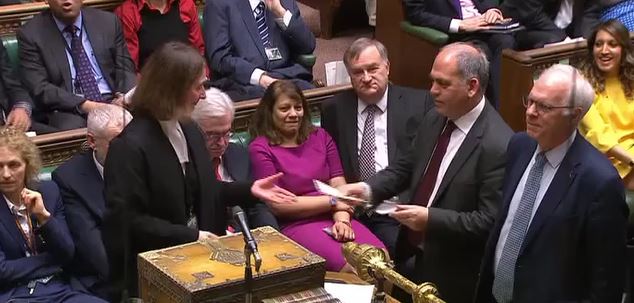- 28/02/2019
- Posted by: Valerie Vaz MP
- Category: News

The Government continues to delay the vote on its EU Withdrawal Agreement.
On Wednesday 27 February the Prime Minister tabled a motion on neutral terms, outlining her plans to hold two further votes if the Withdrawal Agreement is again rejected by parliament. This motion was amendable, giving MPs the chance to put pressure on the Government.
The Labour frontbench amendment (A)
The first amendment to be voted on was that moved by Jeremy Corbyn setting out Labour’s five demands of changes to the Political Declaration to ensure issues such as worker’s rights and the environment are not compromised by the UK’s exit from the EU. The five demands were to secure:
- a permanent and comprehensive customs union with the EU;
- close alignment with the single market underpinned by shared institutions and obligations;
- dynamic alignment on rights and protections;
- commitments on participation in EU agencies and funding programmes, including in areas such as the environment, education, and industrial regulation
- unambiguous agreement on the detail of future security arrangements, including access to the European Arrest Warrant and vital shared databases
The amendment would also require ministers “to introduce primary legislation to give statutory effect to this negotiating mandate.”
This amendment was defeated by 83 votes (Ayes: 240, Noes: 323).
Other amendments
I voted in favour of Amendment K, tabled by the SNP’s leader in Westminster, Ian Blackford, which called for a no deal Brexit to be ruled out. This was defeated by 36 votes (Ayes: 288, Noes: 324).
Amendment B, tabled by Alberto Costa, was passed unanimously without a division. This amendment called for the government to safeguard citizens rights.
I also voted in favour Amendment F was tabled by Yvette Cooper to guarantee the Prime Minister’s promise of a vote on extending Article 50 if the government’s deal is again rejected. This was passed with a majority of 483 (Ayes: 50, Noes: 20).

